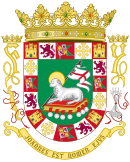
Puerto Rico, officially the Commonwealth of Puerto Rico, is a Caribbean island and unincorporated territory of the United States with official Commonwealth status. It is located in the northeast Caribbean Sea, approximately 1,000 miles (1,600 km) southeast of Miami, Florida, between the Dominican Republic and the U.S. Virgin Islands, and includes the eponymous main island and several smaller islands, such as Mona, Culebra, and Vieques. It has roughly 3.2 million residents, and its capital and most populous city is San Juan. Spanish and English are the official languages of the executive branch of government, though Spanish predominates.

The politics of Puerto Rico take place in the framework of a democratic republic form of government that is under the jurisdiction and sovereignty of the United States Congress as an organized unincorporated territory. Since the 1898 invasion of Puerto Rico by the United States during the Spanish–American War, politics in Puerto Rico have been significantly shaped by its status as territory of the United States. The nature of Puerto Rico's political relationship with the United States is the subject of ongoing debate in Puerto Rico, in the United States, the United Nations and the international community, with all major political parties in the archipelago calling it a colonial relationship.
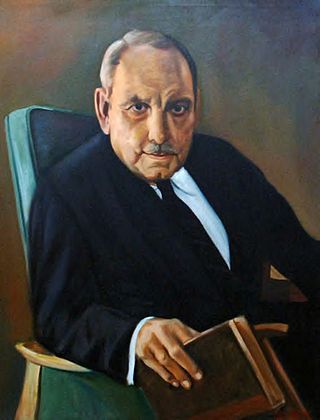
José Luis Alberto Muñoz Marín was a Puerto Rican journalist, politician, statesman and was the first elected governor of Puerto Rico, regarded as the "Architect of the Puerto Rico Commonwealth."
The posts of shadow United States senator and shadow United States representative are held by elected or appointed government officials from subnational polities of the United States that lack congressional vote. While these officials are not seated in either chamber of Congress, they seek recognition for their subnational polity, up to full statehood. This would enfranchise them with full voting rights on the floor of the US House and Senate, alongside existing states. As of 2021, only the District of Columbia and Puerto Rico currently have authorized shadow delegations to Congress.
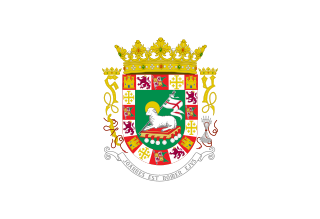
The governor of Puerto Rico is the head of government of the Commonwealth of Puerto Rico, and commander-in-chief of the Puerto Rico National Guard.

Luis Muñoz Rivera was a Puerto Rican poet, journalist and politician. He was a major figure in the struggle for political autonomy of Puerto Rico in union with Spain.

Throughout the history of Puerto Rico, its inhabitants have initiated several movements to obtain independence for the island, first from the Spanish Empire from 1493 to 1898 and since then from the United States.

Antonio Rafael Barceló y Martínez was a Puerto Rican lawyer, businessman and the patriarch of what was to become one of Puerto Rico's most prominent political families. Barceló, who in 1917 became the first President of the Senate of Puerto Rico, played an instrumental role in the introduction and passage of legislation which permitted the realization of the School of Tropical Medicine and the construction of a Capitol building in Puerto Rico.
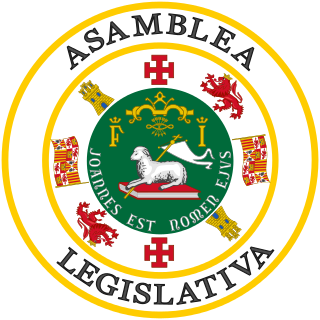
The Legislative Assembly of Puerto Rico is the territorial legislature of the Commonwealth of Puerto Rico, responsible for the legislative branch of the government of Puerto Rico. The Assembly is a bicameral legislature consisting of an upper house, the Senate normally composed of 27 senators, and the lower house, the House of Representatives normally consisting of 51 representatives. Eleven members of each house are elected at-large rather than from a specific legislative district with all members being elected for a four-year term without term limits.

Elections in Puerto Rico are guaranteed by Article Six of the Constitution of Puerto Rico and the Electoral Code of Puerto Rico for the 21st Century Act. All processes are overseen and managed in whole by the Puerto Rico State Elections Commission; an autonomous agency of the executive branch of the government of Puerto Rico.

The Union of Puerto Rico, also known as the Unionist Party, was a major political party in Puerto Rico in the early 20th century. The Union of Puerto Rico was known as the dominant political party of the island from 1904 to 1932. UPR founder Luis Muñoz Rivera also founded La Democracia, which effectively acted as the UPR publication. On 19 February 1904, the Union of Puerto Rico party became the first mass party to advocate for independence for Puerto Rico in the form of a sovereign nation.

The Captaincy General of Puerto Rico was an administrative district of the Spanish Empire, created in 1580 to provide better military management of the island of Puerto Rico, previously under the direct rule of a lone governor and the jurisdiction of Audiencia of Santo Domingo. Its creation was part of the, ultimately futile, Habsburg attempt in the late 16th century to prevent incursion into the Caribbean by foreign powers. Spain also established Captaincies General in Cuba, Guatemala and Yucatán.

The history of Puerto Rico began with the settlement of the Ortoiroid people between 430 BC and AD 1000. At the time of Christopher Columbus's arrival in the New World in 1493, the dominant indigenous culture was that of the Taínos. The Taíno people's numbers went dangerously low during the later half of the 16th century because of new infectious diseases carried by Europeans, exploitation by Spanish settlers, and warfare.

Rosendo Matienzo Cintrón was a Puerto Rican lawyer and politician, a member of the Puerto Rican House of Representatives, and a lifelong political contrarian. He favored Puerto Rican autonomy when Puerto Rico was a Spanish colony. After the Spanish–American War, when the island was ceded to the United States, he advocated statehood for Puerto Rico. In later years, Matienzo Cintrón supported Puerto Rico's independence.

The Intentona de Yauco of March 24–26, 1897 was the second and final major revolt against Spanish colonial rule in Puerto Rico, staged by the island's pro-independence movement in the second half of the nineteenth century. During the Intentona de Yauco, the flag of Puerto Rico was flown on the island for the first time.
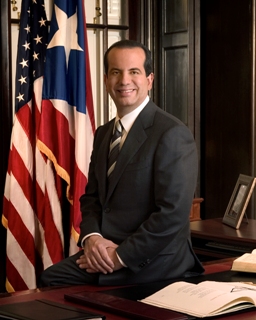
Aníbal Salvador Acevedo Vilá is a Puerto Rican politician and lawyer. He served as the governor of Puerto Rico from 2005 to 2009. He is a Harvard University alumnus and a graduate of the University of Puerto Rico School of Law, where he obtained his Juris Doctor degree. Acevedo Vilá has held various public service positions in the Puerto Rico government under the Popular Democratic Party, serving as a member of the House of Representatives of Puerto Rico (1993–2001) and as the 17th Resident Commissioner (2001–2005), before he was sworn in as Governor on 2 January 2005. Acevedo Vilá was also a member of the National Governors Association, the Southern Governors' Association and the Democratic Governors Association, and a collaborator of President Barack Obama's presidential campaign. Also he is currently an adjunct professor of the University of Puerto Rico School of Law. He unsuccessfully ran for Resident Commissioner of Puerto Rico in the 2020 elections for the Popular Democratic Party.

The Popular Democratic Party is a political party in Puerto Rico that advocates to continue as a Commonwealth of the United States with self-governance. The party was founded in 1938 by dissidents from the Puerto Rican Liberal Party and the Unionist Party and originally promoted policies on the center-left. In recent years, however, its leaders have described the party as centrist.
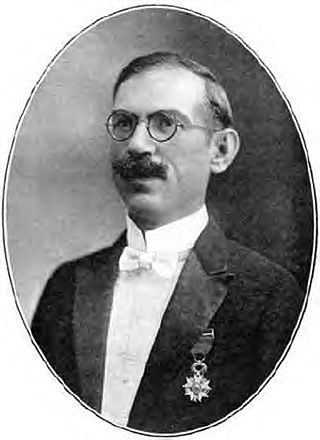
Cayetano Coll y Cuchí was a politician, writer and an advocate of Puerto Rican Independence. In 1917, he became the first President of Puerto Rico House of Representatives after the island was ceded to the United States by Spain as a result of the Spanish–American War. Coll y Cuchí was a member of a prominent family of Puerto Rican politicians, writers and educators.

The 1881 Spanish general election was held on Sunday, 21 August and on Friday, 2 September 1881, to elect the 2nd Restoration Cortes of the Kingdom of Spain. All 392 seats in the Congress of Deputies were up for election, as well as 180 of 360 seats in the Senate.

Law 53 of 1948 better known as the Gag Law, was an act enacted by the Puerto Rico legislature of 1948, with the purpose of suppressing the independence movement in Puerto Rico. The act made it a crime to own or display a Puerto Rican flag, to sing a patriotic tune, to speak or write of independence, or to meet with anyone or hold any assembly in favor of Puerto Rican independence. It was passed by a legislature that was overwhelmingly dominated by members of the Popular Democratic Party (PPD), which supported developing an alternative political status for the island. The bill was signed into law on June 10, 1948 by Jesús T. Piñero, the United States-appointed governor. Opponents tried but failed to have the law declared unconstitutional by the United States Supreme Court.
